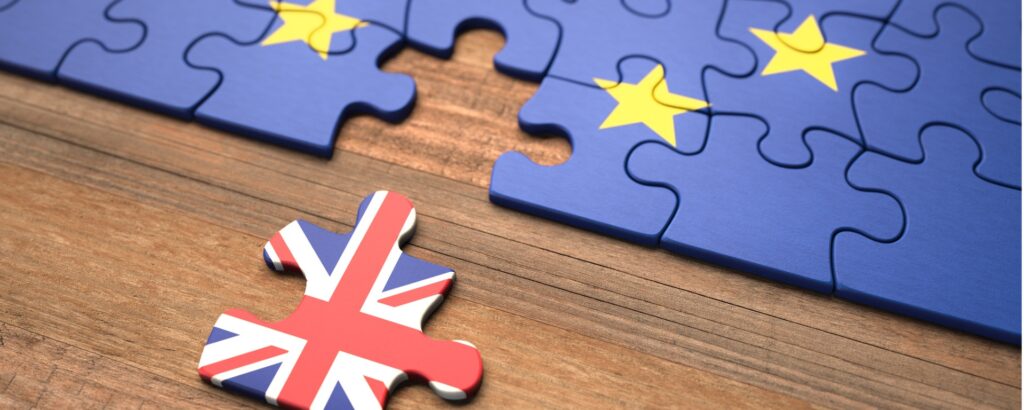What the Northern Ireland deal means
Share this article
Tags

The treatment of Northern Ireland was one of the biggest points of contention between London and Brussels during the Brexit negotiations. Last week, both sides announced the "Windsor Framework Agreement" and thus an agreement. We have summarized the most important points for you.
British Prime Minister Rishi Sunak has achieved what his predecessors in office could not: The UK and the European Union have reached an agreement in the long-running dispute over Brexit rules for Northern Ireland. Agreement achieved. Specifically, the new framework agreement will significantly change the previous Northern Ireland Protocol and is intended to facilitate the movement of goods on the British Isles, as EU Commission President von der Leyen and British Prime Minister Sunak explained at a joint press conference in Windsor.
What is the Northern Ireland Protocol?
The Protocol on Ireland/Northern Ireland was jointly agreed and ratified by the EU and the UK as an integral part of the Withdrawal Agreement. It was one of the contentious issues regarding relations between Brussels and London - the aim was to prevent complications in Northern Ireland after the withdrawal, to maintain peace and stability in the country and at the same time to uphold the integrity of the EU single market.
Brexit also meant that the UK left the customs union and the single market, so a customs border was needed. However, this would logically run between EU member Ireland and Northern Ireland, which is part of the United Kingdom. However, the so-called "Good Friday Agreement" a hard border on the island of Ireland.
Special rules were therefore laid down for Northern Ireland in the Northern Ireland Protocol. This stipulates that the customs border between Great Britain and the EU runs along an imaginary border that lies in the Irish Sea. De facto, these controls take place in the ports. Northern Ireland (unlike England, Scotland and Wales) should continue to follow the rules of the European Single Market in order to avoid a hard border and thus border controls between the two countries.
What will the deal change in practice?
Under the previous Brexit agreement, certain goods must be checked when they arrive in Northern Ireland from Great Britain. These goods are checked on arrival at the ports and can then continue on to Ireland. "Northern Ireland will therefore continue to be treated as part of the EU under customs law," explains customs and foreign trade expert Markus Bitzer. "This has led to problems in the movement of goods between Northern Ireland and Great Britain."
Under the Windsor Agreement, goods are to be separated by customs in two lanes in future: British goods destined exclusively for Northern Ireland will enter the green lane, meaning no checks and minimal paperwork will be required. Goods being transported from the EU to the UK (or vice versa) will continue to be checked by customs at Northern Ireland ports. "The new agreement facilitates the movement of goods between Northern Ireland and Great Britain. But only between the two. Trade between the EU and Great Britain will not be affected. For e-commerce from the EU, this means continuing to look closely at where customers are located and which transport route the goods take," says customs expert Bitzer.
It now remains to be seen what will be decided in the coming weeks at the meeting of the Joint Committee of the EU and the UK as part of the withdrawal agreement. In addition, both the British Parliament and the EU member states must approve the agreement.
Further contributions
No contributions found.
